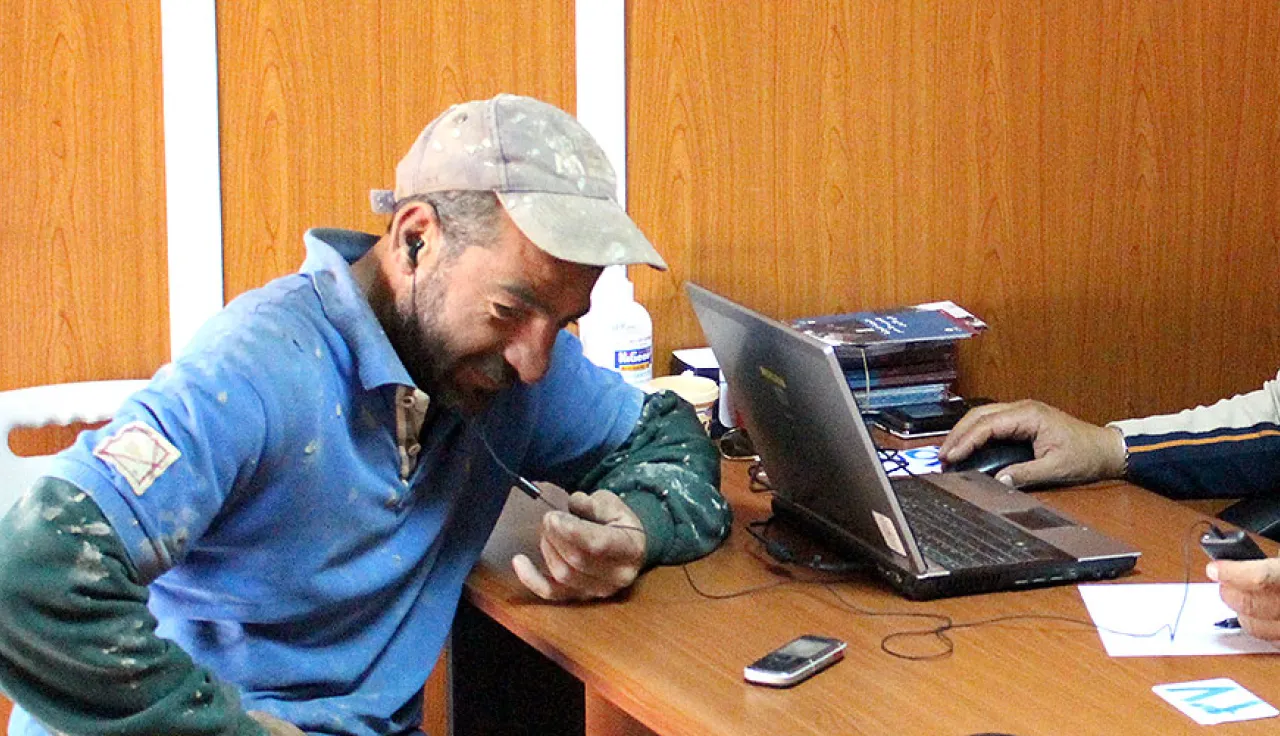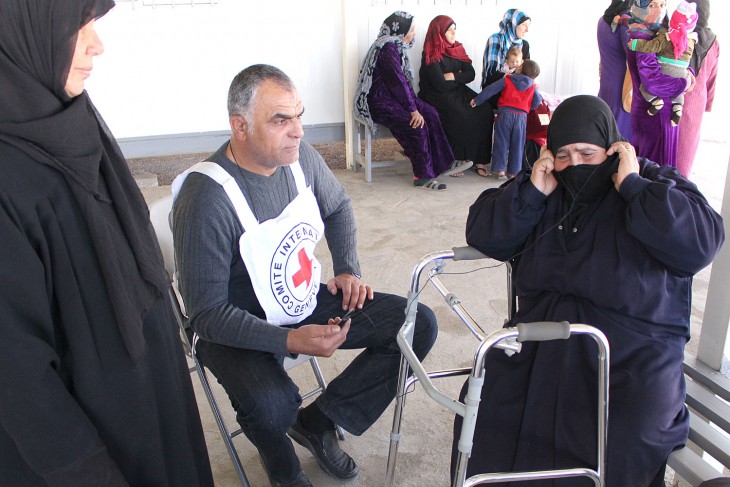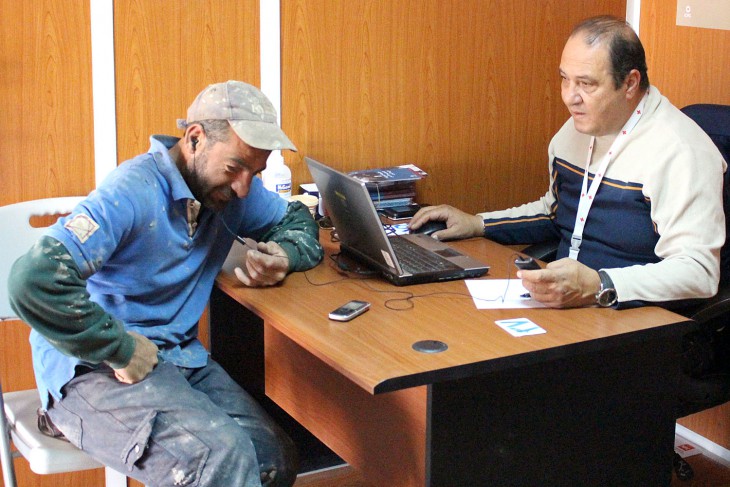Jordan: Helping Syrian families get back in touch

War and harsh living conditions in Syria have driven thousands of families into Jordan where 12,000 refugees have settled in Azraq camp, 100 km east of Amman. Since mid-September the ICRC, through its tracing services, has helped more than 2,500 people to contact relatives in Syria or elsewhere.

Many Syrian refugees in Azraq camp lack the means to stay in touch with their relatives in Syria or abroad. Through its tracing office, the ICRC gives refugees the opportunity to contact their relatives by telephone or hand-written Red Cross messages. It also registers and keeps track of vulnerable individuals, such as unaccompanied minors, with a view to informing their families of their whereabouts. Where feasible, the ICRC helps the more vulnerable people to reunite with their families, whether in or outside the camp.

Ill health does not stop Um Khader from coming regularly to the ICRC tracing office in Azraq camp to phone her daughter in Homs. She left Syria mid-July with her husband and two sons, and with other sons in Syria and in Lebanon, she wonders if she will ever see the rest of her family again. With tears in her eyes, Um Khader said: "Every time I hear my daughter's voice I feel my heart is about to jump out of my chest."

Abu-Abdo rejoices as he hears the voice of his father in rural Damascus. He fled Syria with his wife and children at the beginning of July. Now, with the help of the ICRC, he is able to stay in touch with his father, taking breaks from his construction work at the camp to visit the ICRC tracing office to make three-minute phone calls.

After moving to Azraq camp from Syria with her husband and two-year-old daughter Baylasan, Um Mohammad said that the ICRC had revived her hopes of keeping in touch with her family back in Quneitra. "Shelter, food and water are essential for us to survive here, but we also need information about our loved ones back home," she said as she finished a phone call with her sister.
Photos 1, 2, 4: CC BY-NC-ND / ICRC/ B. Saleh
Photo 3: CC BY-NC-ND / ICRC/H. Shamlawi



